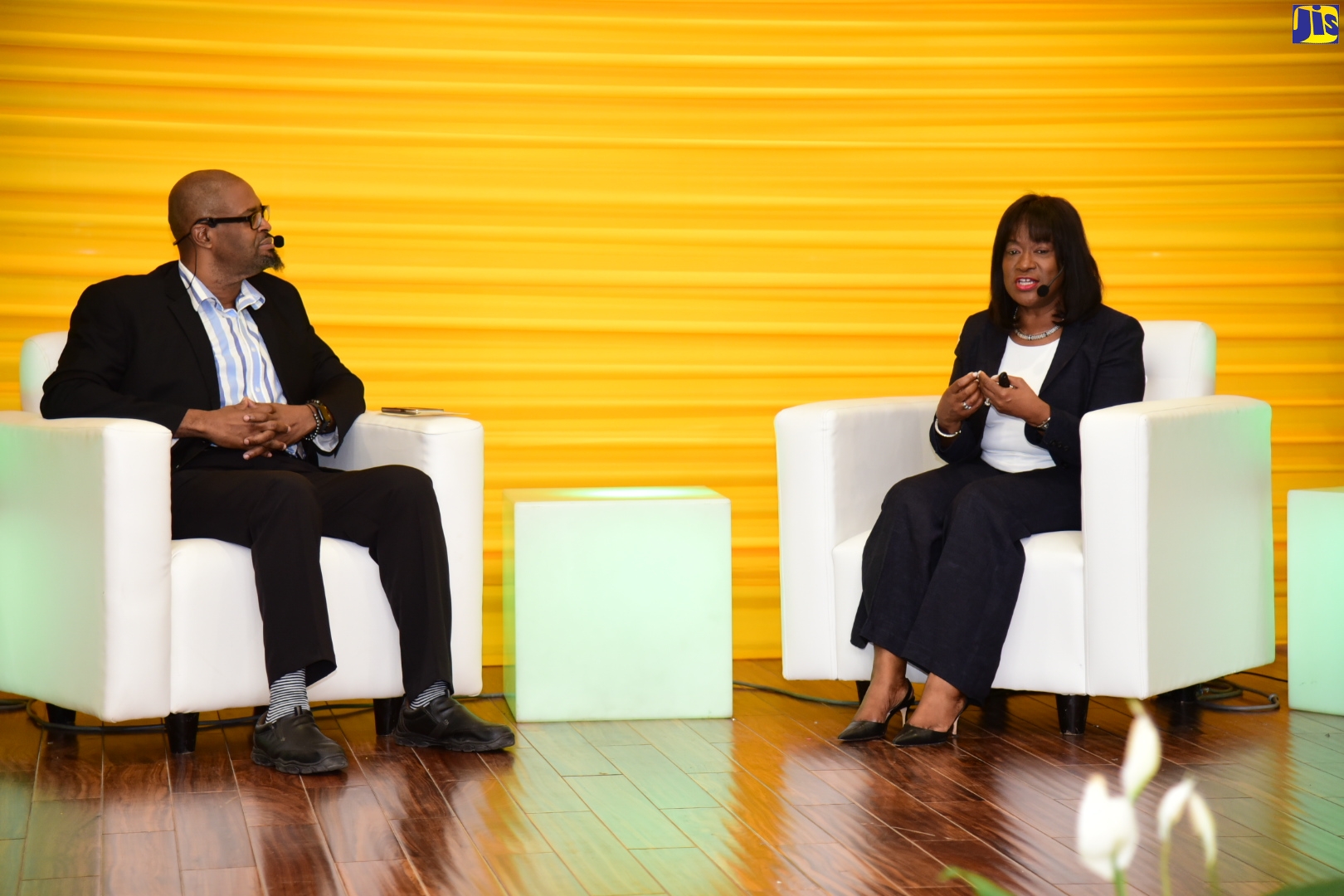Expert Says Collaboration Will Help To Advance Digital Transformation
By: , June 22, 2022The Full Story
Developing a digital ecosystem in collaboration with private and public stakeholders will help to advance digital transformation in Jamaica.
This was supported by Corporate Vice President and Chief Digital Officer for Microsoft, in the US, Jacky Wright, during the recently concluded hybrid diaspora conference, held at the Ministry of Foreign Affairs and Foreign Trade in downtown Kingston.
“We can’t do it alone. So, this notion of partnerships really creates the conditions for transformation and [should] be harnessed collectively, for what I think should be a social good, digital inclusion, and creating a sustainable societal impact,” she said.
The internationally acclaimed digital expert, who was born in London, England, to Jamaican parents, lauded the Government’s plans under the National Vision 2030 framework, as it outlines important factors to build and support a digital ecosystem.
“Jamaica has a lot of things that I think are proof points in terms of [moving forward]. We have 55 per cent penetration in broadband; we have a national identity system that we’re implementing along with data and information to really create a holistic approach to how we provide services to the country,” she noted.
Ms. Wright emphasised that the operations in the Office of the Information Commissioner (OIC) are also critical for building “a data-rich environment” where services can be consumed digitally.
The Office provides advice to the Government on matters relating to data protection and access to information.
Ms. Wright also argued that having a “forward-thinking digital policy and a workforce with the right skills that can empower and educate” are also vital to digital advancement.
She recommended the inclusion of different learning opportunities in the implementation plan for a skilled workforce, beginning with an academic curriculum “that is fit for purpose” and which identifies the specific skill sets that are needed for the sector.
“In isolation, the universities are not going to know. So, you need to work again, in partnership with the private sector, to really understand what these emerging themes are,” Ms. Wright advised.
“The second is creating different modes of learning for accessibility to those with disabilities, and we must think innovatively about how you learn,” she added.
Meanwhile, Ms. Wright said that lifelong learning through solving global problems should be considered in the curriculum.
In doing so, she believes it will help to create competitiveness, value-added businesses, innovations, economic development and greater inclusion.
“So, create a world in education where you do case studies [and] understand things such as biodiversity, water conservation [and how] youth can be part of the solution,” Ms. Wright said.
She argued that efforts to cultivate a “digital culture” by industry and government leaders will also benefit the digital ecosystem being charted.
“The culture needs to exist for people to lean into it. You have to build trust and transparency in your organisation, because [technology] is scary for many people,” she added.
Ms. Wright suggested that to form this culture, you have to demystify “what it really means to adapt to technology and transform your organisation”.
“You must communicate. How do you take people on the journey? It isn’t lights off and on. This is how you take people along,” she emphasised.
Ms. Wright considers transformation to be how services, operations and risk management all adapt to digital technologies, adding that it can be a “great equaliser of men”.
“Technology can help those with disabilities increase their ability to consume services in a way that’s really simple… all of these things,” she said.
Ms. Wright is encouraging young people who are pursuing information and communications technology (ICT) careers to “adjust their mindset for success”.



